
A stunning 1981 live performance at Internationales Jazzfestival Zurich, from pianist Irene Schweizer's short-lived but explosive quartet with Rüdiger Carl, Johnny Dyani, and Han Bennink, blending theatrical flair, fierce intensity, bold humor, and spontaneous surprises in a powerhouse set that channels the spirit of Mingus, the wit of Waller, and the raw energy of punk jazz.
Out of Stock
Quantity in Basket: None
Log In to use our Wish List
Shipping Weight: 3.00 units
Sample The Album:
Irene Schweizer-piano
Rudiger Carl-saxophone, clarinet, accordion
Johnny Dyani-bass, vocals
Han Bennink-drums, percussion
Click an artist name above to see in-stock items for that artist.
UPC: 7640120194383
Label: Intakt
Catalog ID: ITK438.2
Squidco Product Code: 36390
Format: CD
Condition: New
Released: 2025
Country: Switzerland
Packaging: Cardboard Gatefold 3 Panels
Live recorded at Internationales Jazzfestival Zurich, Switzerland, on November 8th, 1981, Radio SRF.
"Irene's Hot Four is a resounding posthumous release from the great jazz pianist, activist and icon Irene Schweizer, who died last year (2024). The publishing of this first concert by the quartet with her companions Rudiger Carl, Johnny Dyani and Han Bennink - which existed for around a year and a half and only played a handful of gigs - closes a gap in the pianist's discography.
"The concert with the Irene Schweizer Quartet in Zurich 1981 demonstrates a theatrical performance that remains musically coherent despite the spectacle. The music is action-oriented, pushy, and takes on an urgency and bidding character through constantly interwoven repetitions. This snapshot resembles a manifesto. This is Jazz with the anger of a Charles Mingus, the boldness of a Fats Waller and the energy of punk"."-Bert Noglik, liner notes

The Squid's Ear!
Artist Biographies
• Show Bio for Irene Schweizer "Irène Schweizer (born 2 June 1941) is a Swiss jazz and free improvising pianist. She was born in Schaffhausen, in 1941. She has performed and recorded numerous solo piano performances as well as performing as part of the Feminist Improvising Group, whose members include Lindsay Cooper, Maggie Nichols, Georgie Born and Sally Potter. She has also performed a series of duets with drummers Pierre Favre, Louis Moholo, Andrew Cyrille, Günter Sommer, Han Bennink, Hamid Drake, as well as in trio and quartet sessions with others, including John Tchicai, Evan Parker and Peter Kowald. With Yusef Lateef, Uli Trepte and Mani Neumeier she performed at the Montreux Jazz Festival in 1967. One of her most enduring collaborations is with the improvising musician Rüdiger Carl (de)." ^ Hide Bio for Irene Schweizer • Show Bio for Rudiger Carl "Rüdiger Carl, Born 1944, Goldap (East Prussia); accordion, saxophone, clarinet, arranger, composer. Rüdiger Carl has been involved in improvised music from 1968, recording his first record in January 1972 and then playing with a wide range of musicians including Arjen Gorter, Makaya Ntshoko, Louis Moholo, Maarten van Regteren Altena, Tristan Honsinger, Johnny Dyani and Han Bennink. His long-standing partnership with Irene Schweizer began in 1973 and continues to the present day and for a three year period, from 1973 to 1976 he was also a member of Globe Unity Orchestra. He began to give solo performances in 1977 and in 1978 started two other long-term professional partnerships, with Sven-Åke Johansson and Hans Reichel. All three musicians were members of the Bergisch-Brandenburgisches Quartett (the fourth member being Ernst-Ludwig Petrowsky) and they have both appeared in duos with Carl, Carl and Johansson are members of the 'Swing Dance Band' (with Alexander von Schlippenbach and Jay Oliver), Carl and Reichel have been members of the September Band since 1993, and the trio of Carl/Reichel/Johansson has itself been performing since 1994 (see below). Rüdiger Carl has probably made the most striking change in improvised music, virtually forsaking the quintessentially jazz instrument - the tenor saxophone - and taking up one with totally different associations and means of expression: the accordion. This was manifest in recordings on Buben, his duets with Hans Reichel, and though he continued to play the two instruments virtually side-by-side ( in addition to clarinet), the - what some might deem to be drastic - move was completed and cemented on Vorn which even featured a version of Paul McCartney's Those were the days. Following this recording, the COWWS Quintet was formed, continuing Carl's musical relationship with Schweizer and adding Philipp Wachsmann, Jay Oliver and Stephen Wittwer. While quite varied moods are apparent from the recorded output of the group, the lasting impression is one of folk and song influences, emphasised by Carl's accordion. With the death of Oliver in 1993, the bass chair was taken by Barre Phillips for approximately one year and then by Arjen Gorter. Rüdiger Carl has continued to work with other musicians in addition to COWWS. Thus, the Canvas Trio was formed in 1991 with Joëlle Léandre and Carlos Zingaro, and in the same year he played in duos with Mayo Thompson of the Red Crayolas (who contributed to the second COWWS record) and Joëlle Léandre. From 1988 to 1992 he was concert organiser of 'Musik im Portikus' in Frankfurt/M. and from 1994 has been leader of the F.I.M. Orchester in Frankfurt/M. His most recent involvements have been in an occasional duo with Burkhard Kunkel, zither and in the ironic electronics trio Blank with Oliver Augst and Christoph Korn. Over a three-year period Blank worked with American painter and poet Raymond Pettibon, initially at the Philharmonie in Cologne (released on GROB) and later documented in the hörspiel Long live the people of the revolution, released on Eventuell." ^ Hide Bio for Rudiger Carl • Show Bio for Johnny Dyani "Johnny Mbizo Dyani (30 November 1945 - 24 October 1986) was a South African jazz double bassist and pianist, who played with such musicians as Don Cherry, Steve Lacy, David Murray, Finnish guitar player Jukka Syrenius and Leo Smith. Dyani was born and grew up in Duncan Village, a township of the South African city of East London. In the early 1960s, he was a member of South Africa's first integrated jazz band, The Blue Notes, with Mongezi Feza on trumpet, Dudu Pukwana on alto saxophone, Nikele Moyake on tenor saxophone, Chris McGregor on piano, and Louis Moholo on drums. In 1964, the band fled South Africa to seek musical and political freedom. Moholo explained, "We were rebels and we were trying to run away from this apartheid thing. We rebelled against the apartheid regime that whites and blacks couldn't play together. We stood up." In 1966, Dyani toured Argentina with Steve Lacy's quartet. Lacy, Dyani and Moholo recorded The Forest and the Zoo. In 1971 Dyani formed his own group Earthquake Power, and in 1972 co-founded Xaba with Mongezi Feza and Okay Temiz. Performing widely throughout Europe, Dyani moved to Copenhagen, Denmark, in the early 1970s, and about ten years later to Sweden, recording many albums under his own name. He recorded with Dollar Brand (Abdullah Ibrahim), Don Cherry, Steve Lacy, David Murray, Joseph Jarman, Clifford Jarvis, Don Moye, Han Bennink, Brotherhood of Breath, Mal Waldron, Pierre Dørge and many others. Dyani died suddenly in 1986 after a performance in West Berlin." ^ Hide Bio for Johnny Dyani • Show Bio for Han Bennink "Drummer and multi-instrumentalist Han Bennink was born in Zaandam near Amsterdam in 1942. His first percussion instrument was a kitchen chair. Later his father, an orchestra percussionist, supplied him with a more conventional outfit, but Han never lost his taste for coaxing sounds from unlikely objects he finds backstage at concerts. He is still very fond of playing chairs. In Holland in the 1960s, Bennink was quickly recognized as an uncommonly versatile drummer. As a hard swinger in the tradition of his hero Kenny Clarke, he accompanied touring American jazz stars, including Sonny Rollins, Ben Webster, Wes Montgomery, Johnny Griffin, Eric Dolphy and Dexter Gordon. He is heard with Gordon on the 1969 album "Live at Amsterdam Paradiso" (on the Affinity label) and with Dolphy on 1964s "Last Date" (PolyGram). At the same time, Bennink participated in the creation of a European improvised music which began to evolve a new identity, apart from its jazz roots. With fellow Dutch pioneers, pianist Misha Mengelberg and saxophonist Willem Breuker, he founded the musicians collective Instant Composers Pool in 1967. Bennink anchored various bands led by Mengelberg or Breuker, and appeared in their comic music-theater productions. Bennink attended art school in the 1960s, and is also a successful visual artist in several media, often constructing sculpture from found objects, which may include broken drum heads and sticks. He has designed the covers for many LPs and CDs on which he appears. Bennink is represented by Amsterdam's Galerie Espace, and has been the subject of several one-man shows, including one at the Gemeente Museum in the Hague in 1995. In 1966, Bennink played the US's Newport Jazz Festival with the Mengelberg quartet. From the late 1960s through the '70s Bennink collaborated frequently with Danish, German, English and Belgian musicians, notably saxophonists John Tchicai and Peter Broetzmann, guitarist Derek Bailey and pianist Fred van Hove. Bennink, Broetzmann and van Hove had a longstanding trio well documented on FMP Records. There Bennink also showcased his talents on clarinet, trombone, soprano saxophone and many other instruments, also featured in a series of solo albums he began in 1971. Bennink's many recordings from the 1980s include sessions with Mengelberg's ICP Orchestra (where he remains), South African bassist Harry Miller, soprano saxophonist Steve Lacy, trombonists Roswell Rudd and George Lewis, and big-bandleaders Sean Bergin and Andy Sheppard. From 1988 to'98 Bennink's main vehicle was Clusone 3, with saxophonist and clarinetist Michael Moore and cellist Ernst Reijseger, a band noted for its free-wheeling mix of swinging jazz standards, wide-open improvising, and tender ballads. Clusone played Europe and North America, West Africa, China, Vietnam and Australia, and recorded five CDs for Gramavision, hat Art and Ramboy. Nowadays he is frequently heard with tenor saxophonist Tobias Delius's quartet and in a trio with pianist/keyboardist Cor Fuhler and bassist Wilbert de Joode, and he still collaborates occasionally with jazz luminaries such as Johnny Griffin, Von Freeman and Ray Anderson. A conspicuous feature of Bennink's musical life since the 1960s is the spontaneous duo concert with musicians of many nationalities and musical inclinations; in the '90s he recorded in duo with among others pianists Mengelberg, Irene Schweizer and Myra Melford, guitarist Eugene Chadbourne, trumpeter Dave Douglas and tenor saxophonist Ellery Eskelin. Since 2008 Han Bennink has his own Han Bennink Trio consisting of Han Bennink, Joachim Badenhorst on clarinet and Simon Toldam on piano." ^ Hide Bio for Han Bennink
1/26/2026
Have a better biography or biography source? Please Contact Us so that we can update this biography.
1/26/2026
Have a better biography or biography source? Please Contact Us so that we can update this biography.
1/26/2026
Have a better biography or biography source? Please Contact Us so that we can update this biography.
1/26/2026
Have a better biography or biography source? Please Contact Us so that we can update this biography.
Track Listing:
1. Reise 23:23
2. Freizeit 16:17
3. All Inclusive 16:45
4. Encore 7:29
Intakt
Improvised Music
Jazz
Jazz & Improvisation Based on Compositions
Free Improvisation
European Improvisation, Composition and Experimental Forms
Quartet Recordings
Staff Picks & Recommended Items
New in Improvised Music
Recent Releases and Best Sellers
Search for other titles on the label:
Intakt.


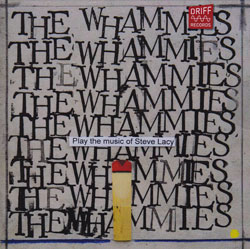
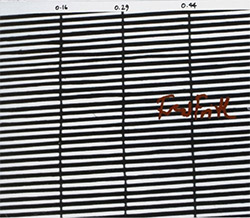


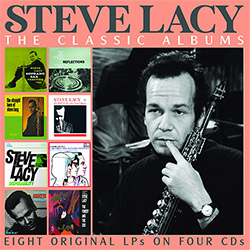
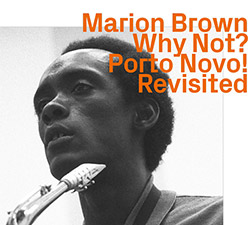




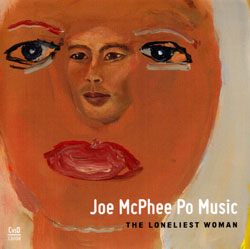
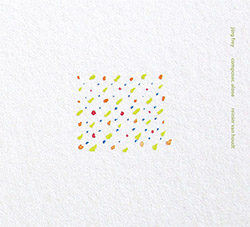
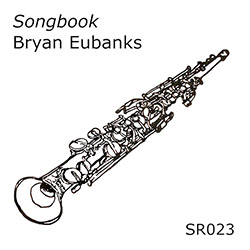

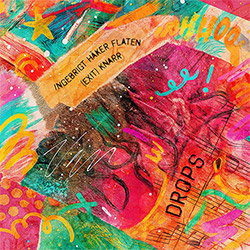
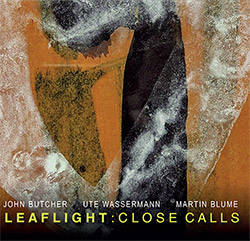


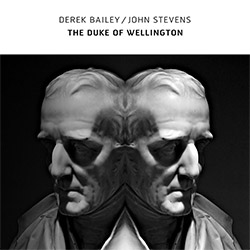







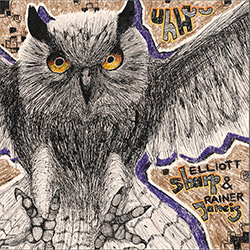
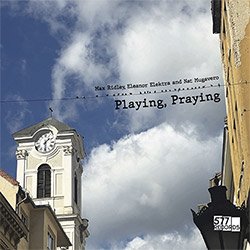

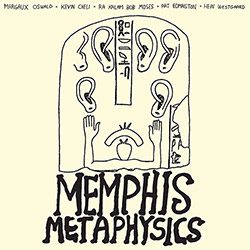
![Hoffman, Christopher: REX [VINYL]](https://www.teuthida.com/productImages/misc4/36934.jpg)
![Wrens: Half Of What You See [VINYL]](https://www.teuthida.com/productImages/misc4/37095.jpg)

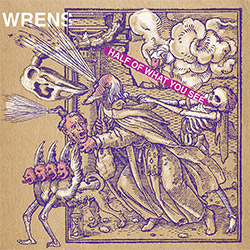
![Cartier, Pierre: Chansons de Douve [2 CDs]](https://www.teuthida.com/productImages/misc3/cartierChansonsDouve.jpg)



![Davies, Angharad / Burkhard Beins : Meshes Of The Evening [VINYL]](https://www.teuthida.com/productImages/misc4/36990.jpg)
![Bussmann, Nicholas / Sven-Ake Johansson / Yan Jun: Tea Time [Vinyl]](https://www.teuthida.com/productImages/misc4/36991.jpg)
![Feldman, Morton / GBSR Duo w/ Taylor MacLennan: Trios [6 CD BOX SET]](https://www.teuthida.com/productImages/misc4/37020.jpg)
![Williams, Jessica: Blue Abstraction: Prepared Piano Project 1985-1987 [VINYL]](https://www.teuthida.com/productImages/misc4/37080.jpg)
![Levin, Daniel / Laurent Estoppey: Freedom From The Known [VINYL]](https://www.teuthida.com/productImages/misc4/37091.jpg)
![Fagaschinski, Kai: Aerodynamics [VINYL 2 LPs]](https://www.teuthida.com/productImages/misc4/36992.jpg)
![Allbee, Liz: Breath Vessels [VINYL]](https://www.teuthida.com/productImages/misc4/37012.jpg)
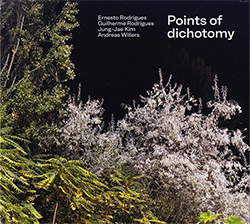
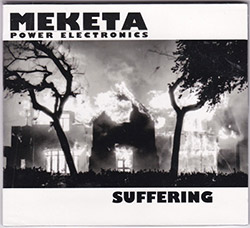


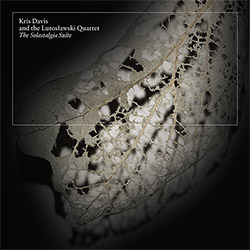
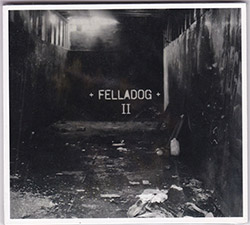


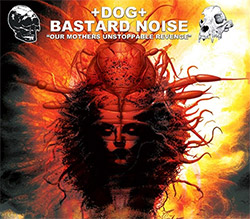



![Parker, Evan / Andrea Centazzo: Bullfighting On Ice! Live In Padova 1977 [VINYL]](https://www.teuthida.com/productImages/misc4/37064.jpg)
![Curran, Alvin / Andrea Centazzo / Evan Parker: Real Time [VINYL]](https://www.teuthida.com/productImages/misc4/37065.jpg)
![Curran, Alvin / Andrea Centazzo / Evan Parker: Real Time Two [VINYL]](https://www.teuthida.com/productImages/misc4/37066.jpg)
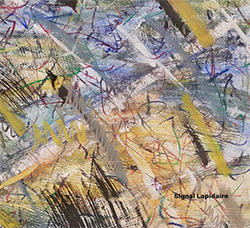

![Rodrigues, Ernesto / Jung-Jae Kim / Guilherme Rodrigues / Eric Bauer / Stephen Flinn: 5 In The Afternoon [2CDs]](https://www.teuthida.com/productImages/misc4/36957.jpg)



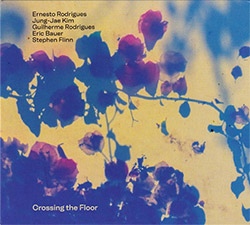





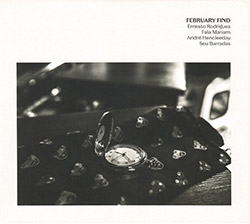
![Evans, Peter / Being & Becoming: Ars Ludricra [VINYL + DOWNLOAD]](https://www.teuthida.com/productImages/misc4/37026.jpg)

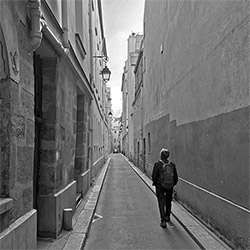
![Belorukov, Ilia / Alex Riva: Wrestling For Futility [CASSETTE w/DOWNLOAD]](https://www.teuthida.com/productImages/misc4/36994.jpg)


![Genthon, Anouck / Lionel Marchetti: Suite Blanche [2 CDs]](https://www.teuthida.com/productImages/misc4/36642.jpg)
![Toeplitz, Kasper T.: Erosions Programmees [CD + BOOKLET]](https://www.teuthida.com/productImages/misc4/36639.jpg)
![Gate, The : Almost Live [CASSETTE + MAGAZINE]](https://www.teuthida.com/productImages/misc4/36836.jpg)






![A Magic Whistle: The Solar Cell [VINYL]](https://www.teuthida.com/productImages/misc4/36658.jpg)

![McGee, Hal: Columbus Expedition [Cassette w/ Download]](https://www.teuthida.com/productImages/misc4/36650.jpg)


![Jaeger, Kassel: Fernweh [VINYL 2 LPs]](https://www.teuthida.com/productImages/misc4/36541.jpg)












![Frey, Jurg with ensemble]h[iatus: Je Laisse A La Nuit Son Poids D](https://www.teuthida.com/productImages/misc4/36988.jpg)




![Pisaro-Liu, Michael: Within (2) / Appearance (2) [2 CDs]](https://www.teuthida.com/productImages/misc4/36831.jpg)










![Musicworks Magazine: #151 Summer 25 [MAGAZINE + CD]](https://www.teuthida.com/productImages/misc4/36559.jpg)

![Brown, Dan / Dan Reynolds: Live At The Grange Hall [unauthorized][CASSETTE]](https://www.teuthida.com/productImages/misc4/36245.jpg)

![Zorn, John: The Song of Songs [CD + CD BOOK]](https://www.teuthida.com/productImages/misc4/36923.jpg)

![Coultrain: Mundus [COLORED VINYL]](https://www.teuthida.com/productImages/misc4/33056.jpg)
![Hprizm: Signs Remixed [COLORED VINYL]](https://www.teuthida.com/productImages/misc4/30635.jpg)
![Halls Of the Machine: All Tribal Dignitaries [CASSETTE w/ DOWNLOAD]](https://www.teuthida.com/productImages/misc4/36134.jpg)



![Koenjihyakkei: Live at Club Goodman [2 CDs]](https://www.teuthida.com/productImages/misc4/36111.jpg)

![Sorry For Laughing (G. Whitlow / M. Bates / Dave-Id / E. Ka-Spel): Rain Flowers [2 CDS]](https://www.teuthida.com/productImages/misc4/35985.jpg)

![Rolando, Tommaso / Andy Moor : Biscotti [CASSETTE w/ DOWNLOADS]](https://www.teuthida.com/productImages/misc4/36106.jpg)


![Electric Bird Noise / Derek Roddy: 8-10-22 [CD EP]](https://www.teuthida.com/productImages/misc4/35970.jpg)








![Elephant9 : Mythical River [VINYL]](https://www.teuthida.com/productImages/misc4/34624.jpg)



![Elephant9 with Terje Rypdal: Catching Fire [VINYL 2 LPs]](https://www.teuthida.com/productImages/misc4/35355.jpg)
![Coley, Byron: Dating Tips for Touring Bands [VINYL]](https://www.teuthida.com/productImages/misc4/17906.jpg)

![Lost Kisses: My Life is Sad & Funny [DVD]](https://www.teuthida.com/productImages/misc4/lostKissesDVD.jpg)